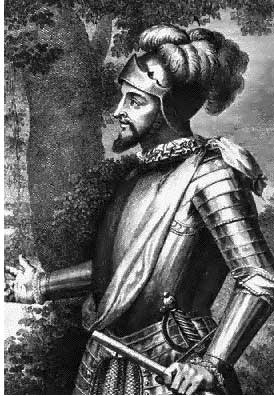Biography of Vasco Nunez de Balboa

Vasco Nunez de Balboa was born in 1475 in Jerez de los Caballeros. Although his father was a nobleman, Balboa grew up in poverty. In 1500, Balboa journeyed to the New World with the expedition led by Rodrigo de Bastidas. This expedition explored parts of both Central and South America before sailing to Hispaniola. Once in Hispaniola, Balboa tried his hand at farming. However, his farming venture was unsuccessful, leading him into debt. To evade his creditors, he secretly boarded an expedition bound for the new settlement of San Sebastian.
Upon arrival at San Sebastian, the group discovered the settlement had been destroyed. With the governor gone, Balboa persuaded the settlers to relocate to the region of Darien, where they founded the settlement of Santa Maria. Here, Balboa quickly built a strong reputation and eventually maneuvered his way to becoming the settlement's governor. He then organized expeditions to explore the coastline of Panama.
Stories of a vast ocean intrigued Balboa. He assembled a team of 190 Spaniards and 1,000 allied natives to cross the mountains. The journey was arduous, with parts requiring them to cut through dense jungle.
On September 25th, 1513, upon reaching a mountain peak, Vasco Nunez de Balboa beheld the Pacific Ocean. Four days later, he arrived at the shores of what he named the "Mar del Sur" (South Sea) and claimed it for Spain.
Following his discovery of the Pacific, Balboa continued to explore the region, uncovering both gold and pearls. When he returned to Santa Maria in 1514, he found a new governor at the helm. Though Balboa recognized the new governor's authority, his relationship with Governor Pedrarias D'ávila was tumultuous. Nevertheless, Balboa remained in the colony and married the governor's daughter. Between 1517 and 1518, he explored the western coast of Panama. However, upon his return, Pedrarias had Francisco Pizarro arrest Balboa on charges of treason. After a trial, Balboa was found guilty and was beheaded on January 15, 1519.
.
 >
>